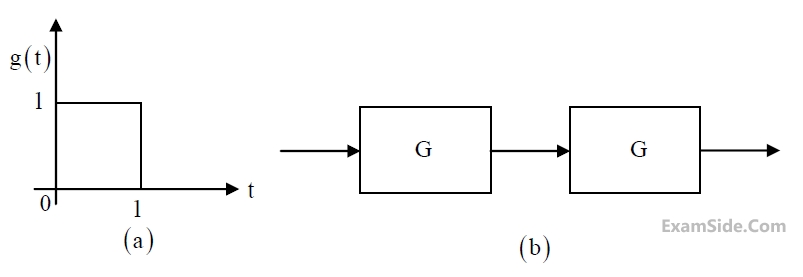1
GATE EE 2015 Set 1
MCQ (Single Correct Answer)
+1
-0.3
The impulse response g(t) of a system G, is as shown in Figure (a). What is the maximum
value attained by the impulse response of two cascaded blocks of G as shown in Figure (b)?


2
GATE EE 2014 Set 2
MCQ (Single Correct Answer)
+1
-0.3
Consider an LTI system with transfer function $$H\left(s\right)=\frac1{s\left(s+4\right)}$$.If the input to the system is cos(3t) and the steady state output is $$A\sin\left(3t+\alpha\right)$$, then the value
of A is
3
GATE EE 2014 Set 2
MCQ (Single Correct Answer)
+1
-0.3
Consider an LTI system with impulse response $$h\left(t\right)=e^{-5t}u\left(t\right)$$ . If the output of the system is
$$y\left(t\right)=e^{-3t}u\left(t\right)-e^{-5t}u\left(t\right)$$ then the input, x(t), is given by
4
GATE EE 2014 Set 1
MCQ (Single Correct Answer)
+1
-0.3
x(t) is nonzero only for $$T_x\;<\;t\;<\;T_x^1$$ , and similarly, y(t) is nonzero only for $$T_y\;<\;t\;<\;T_y^1$$ . Let
z(t) be convolution of x(t) and y(t). Which one of the following statements is TRUE?
Questions Asked from Linear Time Invariant Systems (Marks 1)
Number in Brackets after Paper Indicates No. of Questions
GATE EE Subjects
Electric Circuits
Electromagnetic Fields
Signals and Systems
Electrical Machines
Engineering Mathematics
General Aptitude
Power System Analysis
Electrical and Electronics Measurement
Analog Electronics
Control Systems
Power Electronics